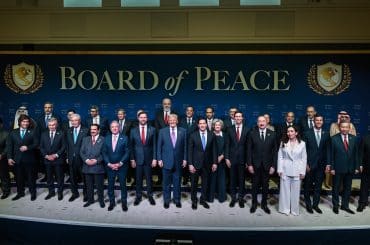Yesterday I heard Walter Isaacson talking about his biography of the last Steve Jobs on Terry Gross’s NPR show Fresh Air.
The story of Jobs’s parenthood is amazing. He was given up for adoption by his American mother, Joanne Schieble, and his Syrian-American father, Abdulfattah “John” Jandali, born in Homs. He was raised by Paul and Clara Jobs in Mountain View, California.
In his 20s, Jobs sought to find his biological parents. By reaching out to the doctor listed on his birth certificate, he was able to find Schieble. And Schieble introduced him to his sister, Mona Simpson, the novelist.
Walter Isaacson said that Jobs was pleased to discover that his sister was a great artist. Simpson told Jobs who his father was, and Jobs realized that he had met Jandali. Because Jandali ran a restaurant in Silicon Valley.
Says this account online:
“When I was looking for my biological mother, obviously I was looking for my biological father at the same time. I learned a little bit about him, and I didn’t like what I learned,” he told Walter Isaacson.
Jobs decided he did not want to see his father again. On the radio yesterday, Isaacson said that Jobs described Jandali as fat and balding. Terry Gross did not press the point: Why was Jobs averse to meeting his father?
No doubt Steve Jobs was an aesthetic monster. That taste/perfectionism/snobbery guided his achievement.
But I have to wonder whether he did not also share the conventional social prejudice against Arab-Americans, even in our “high” culture, the attitude reflected by novelist Erica Jong, who once titled a chapter of a book, Arabs and Other Animals. I hope that Mona Simpson, who shares Jobs’s Arab-American background, will write about this issue some day.
P.S. Jobs’s adoptive mother was an Armenian-American.


Hating him because he was Arab doesn’t fit with an artistic reaction. I read on HuffPo that he used to eat in his father’s restaurant before he knew who the guy was, but he didn’t like the man himself. And that was before he knew the guy was his father.
Is Terry Gross trying to create anti-Arab stuff? I’m becoming appalled by NPR’s innuendo in general. These just seems like more of the same.
Terry Gross did not press the point: Why was Jobs averse to meeting his father?
yes, it seems like a natural follow up. (why no reference to how ‘smart’ gross is in this post?) the interview was pretty light stuff, with hagiographic references to jobs inventing the cell phone, personal computer, sliced bread, the mousetrap, and the latest surgical techniques to repair inguinal hernias. not a single reference to apple’s relationship with Foxconn, the superficial uses of the gadgetry produced, the cult of apple and jobs (i was in a store recently with my daughter, and a sales person was being ‘knighted’ in kitsch medieval styale as he passed the 3-month mark as a sales associate. oh, the thrill! and, yes, it seems most/all employees were a ‘he’ for whatever reason). and why the lack of interest in ‘dad’? i suspect it’s just that jobs has no use for anyone who isn’t a celebrity of sorts, either in their field, or in the true sense. but who knows. he wasn’t much of a human being, that’s for sure.
For Jong, that was directed to her brother-in-law who was a Lebanese Catholic.
Interesting, thanks, Phil.
Heard about 10 minutes of the program. Tired of this effort to canonize Jobs. Know he was a genius, innovator, visionary billionaire. Really bothered that the guy never really spread credit for the products created amongst the geniuses that he could afford to harness.
He could have made those to bridge the digital divide. How many jobs did Jobs create in the US?
Interesting that he would make such a rigid judgement about his bio father. Guess he deserves no more no less